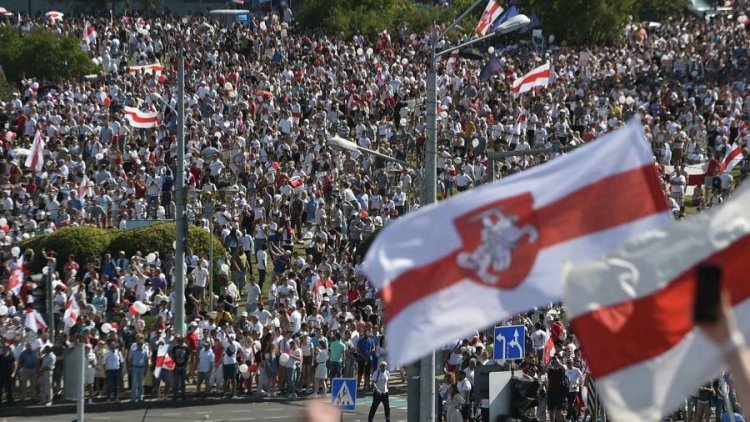Belarusian Ambassador Resigns After Supporting Protesters

Slovakia: The Belarusian ambassador to Slovakia, who supported protesters rallying against his country's president, said Tuesday he has handed in his resignation, a move indicating growing dissent at a high diplomatic level.
Igor Leshchenya said in an interview that it was “a logical move" after he recorded a video statement supporting unprecedented protests that have roiled Belarus for nine days in a row since the August 9 presidential election that gave a sixth term to longtime leader Alexander Lukashenko.
In the statement released on Saturday, Leshchenya expressed “solidarity with those who came out on the streets of Belarusian cities with peaceful marches so that their voice could be heard," said he was shocked by the reports of mass beatings and torture of protesters and accused Belarusian law enforcement of restoring the traditions of the Soviet secret police.
“As an ambassador, I'm appointed by the president, and it is expected that I follow the policies determined by him. The Foreign Ministry [of Belarus] believes my civic stance has gone beyond that,” Leshchenya told independent Belarusian news outlet Tut.by on Tuesday.
The president is yet to sign Leshchenya's resignation.
Leshchenya, 52, was the first top government official to support the protests against Lukashenko, who won 80% of the votes, according to the official election results.
Lukashenko's top challenger, former English teacher Sviatlana Tsikhanouskaya, got only 10% and denounced the vote as rigged, demanding a recount as hundreds of thousands of people poured into the streets all across Belarus in protest.
The rallies have continued despite a brutal response from the police, who in the first four days of demonstrations detained almost 7,000 people and injured hundreds with rubber bullets, stun grenades and clubs. At least two protesters died.
Tsikhanouskaya left the country for Lithuania in a move her campaign said was made under duress. On Monday she announced she was ready to act as a national leader to facilitate a new election.
Lukashenko, who has run the ex-Soviet nation of 9.5 million with an iron fist since 1994, bristled at the idea and refused to cede his post despite the protests growing and attracting more and more people who used to be at the core of his electorate.















































